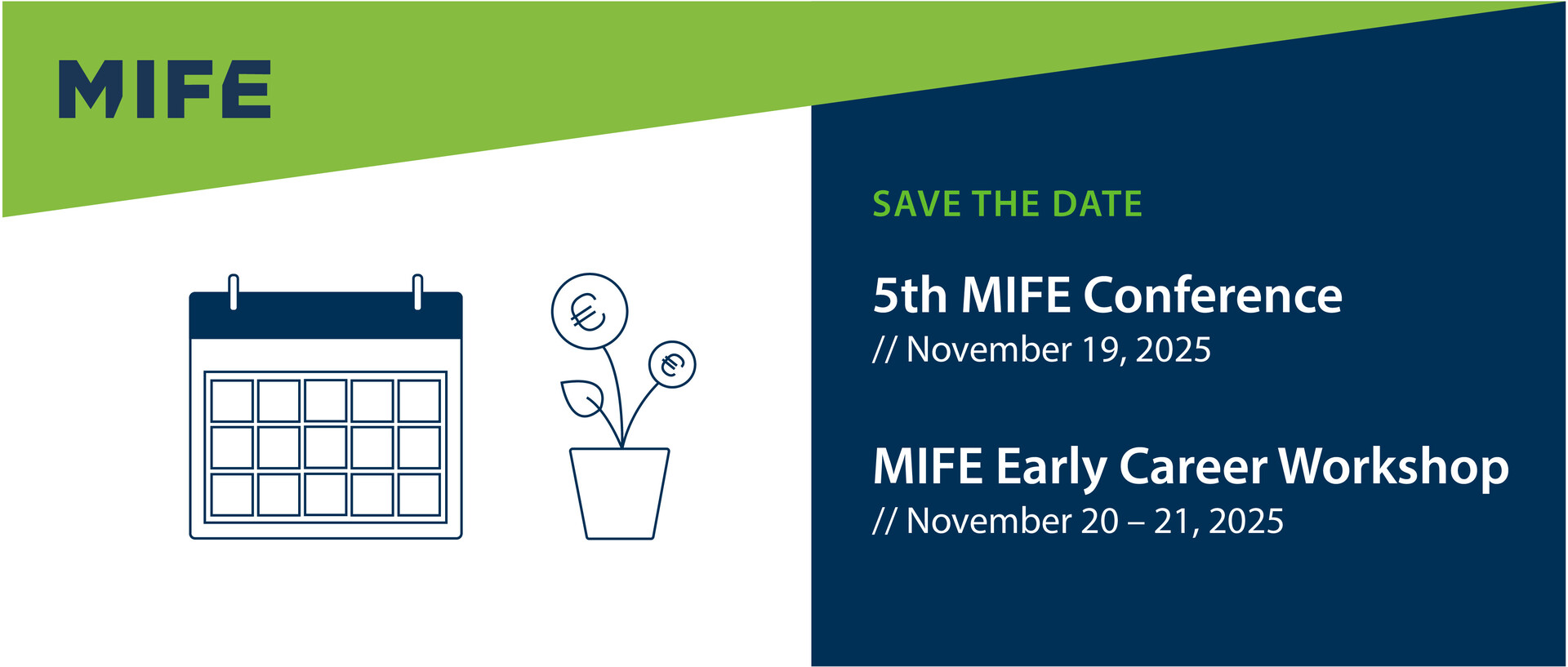About MIFE
Mission
The Mannheim Institute for Financial Education (MIFE) conducts basic research on financial education of all population groups in the 21st century on the basis of state-of-the-art research methods. Our research focuses on financial literacy, i.e. the knowledge and skills associated with adequate financial decision-making, as well as on the conditions and possibilities for effectively supporting the development of this knowledge and skills through appropriate educational, communication and information measures.
At the same time, we offer a platform for academic exchange and close contact with decision-makers in politics and practice. The Mannheim Institute for Financial Education (MIFE) thus combines relevant scientific expertise with social responsibility and evidence-based policy advice.
Research Areas
Against the backdrop of the challenges of demographic and societal change, the current changes in labour and financial markets and social security systems, as well as the opportunities and risks of digitalisation, the Mannheim Institute for Financial Education (MIFE) deals with questions of personal financial management and retirement planning as well as with the systemic understanding of financial and economic issues. The aim is to identify differences in competencies, to assess the consequences of gaps in financial education and to develop and evaluate interventions that can effectively promote the financial education of citizens. Currently, we are focusing on the following topics in particular
- Sustainable financial education across the lifespan
- Digitalisation and financial education
- Long-term financial decisions and old-age provision
Activities
Against the background of its mission and research priorities, the researchers at the Mannheim Institute for Financial Education (MIFE) pursue the following activities, among others:
- Conducting research and development projects using state-of-the-art methods
- Establishing an interdisciplinary network of national and international researchers
- Organising scientific events
- Promoting the exchange between science, politics and practice as well as evidence-based consulting.
Target groups
As an independent scientific institution, the Mannheim Institute for Financial Education (MIFE) incorporates the perspectives of various groups of people and institutions. In addition to the national and international research community, these include, in particular, all kinds of formal and informal educational institutions, teacher education and training institutions, ministries, financial service providers and their associations as well as consumer advocates, debt counselling services and other interest groups (e.g. employers' associations and trade unions).

